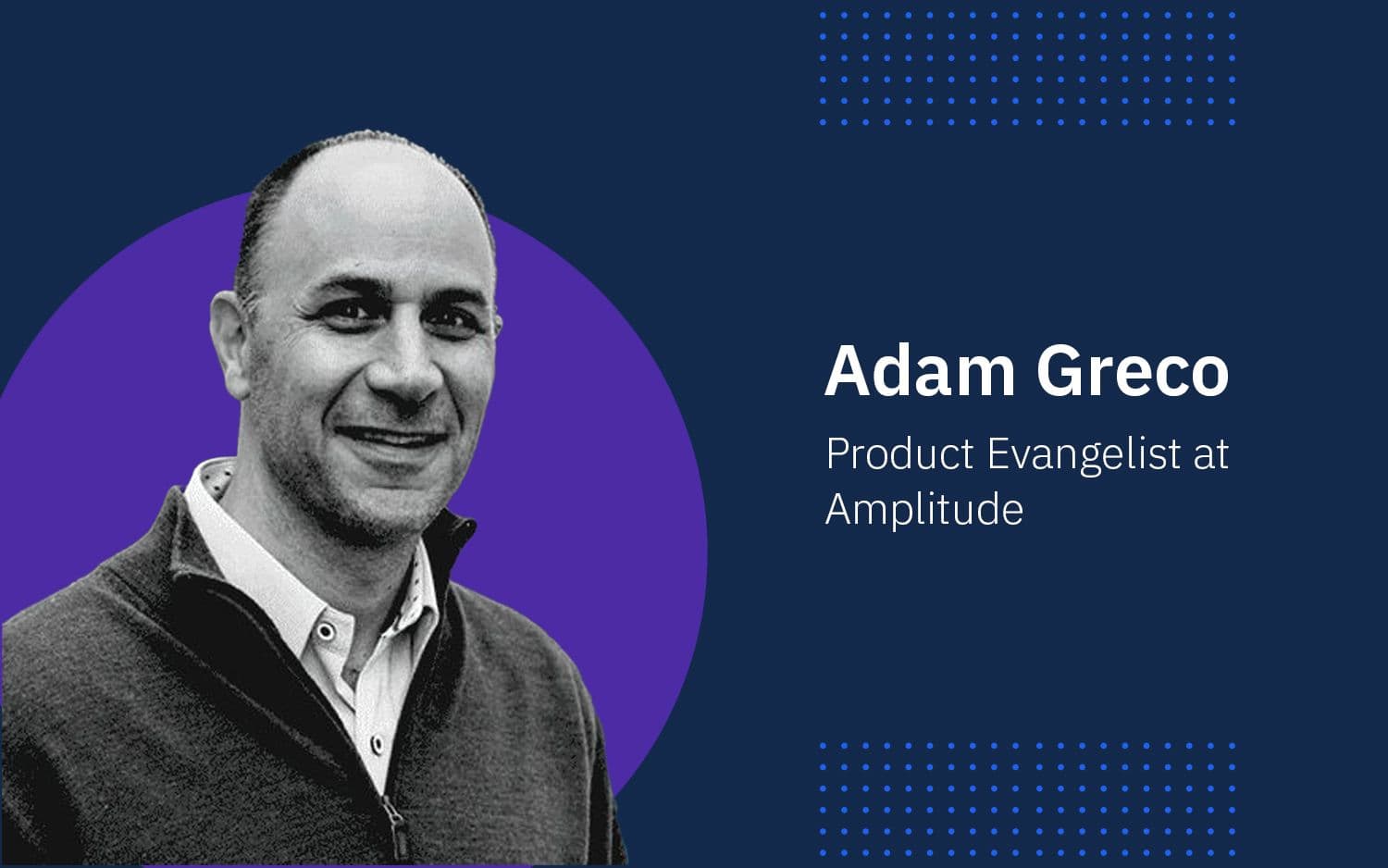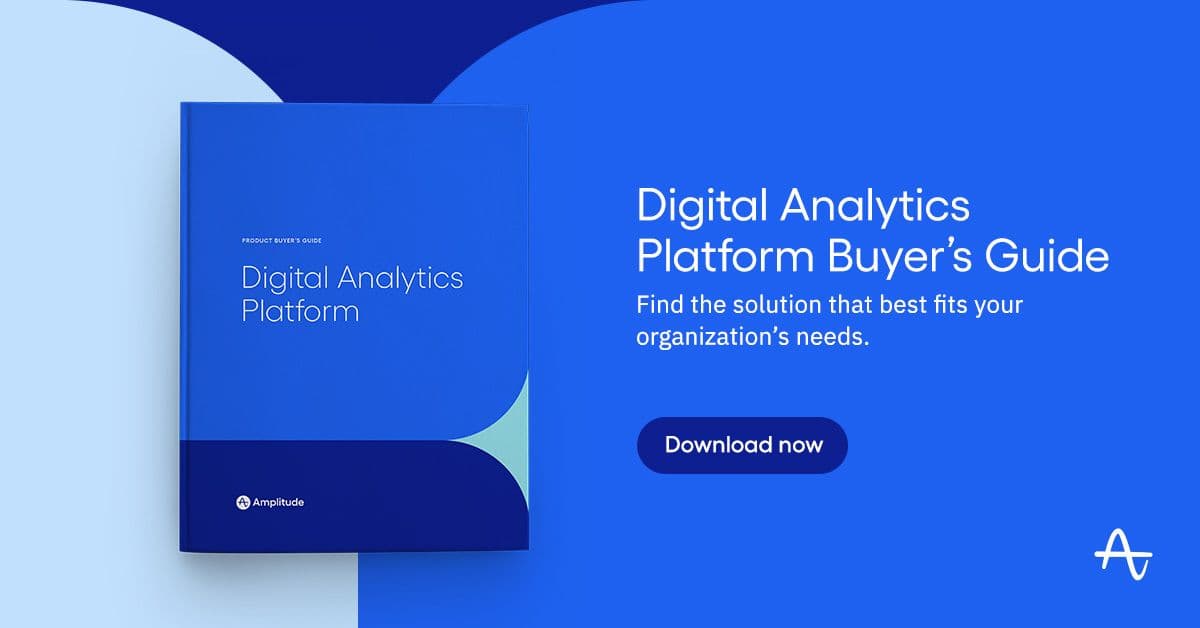Why I Joined Amplitude as a Product Evangelist
Digital analytics is undergoing a shift: from a marketing mindset to a product-led mindset. Amplitude is at the forefront of this movement.
I am a big fan of Ted Lasso on Apple TV+. In the show, Ted Lasso is an American football coach who makes a career change to become a European football (soccer for us Americans) coach, even though he knows very little about the new world he is entering.

But Coach Lasso believes that the tenets of success are the same, regardless of the sport. I believe the same is true when it comes to driving success with different analytics products. It is with this idea in mind that I am excited to announce that this week, I started a new, full-time product evangelist role at Amplitude. For those of you who have followed me for a while, I would not be surprised if this were your initial reaction:

After all, I have spent the past 20 years as a client, consultant or educator for the Omniture SiteCatalyst/Adobe Analytics product. My old Twitter handle was @Omni_Man and I authored the book on Adobe Analytics. I have presented at most Adobe Summits, conducted many Adobe Analytics training classes and have authored over 200 blog posts related to Adobe Analytics.
When I joined Omniture back in 2005, it was a very young company, with few clients, but a strong vision. It had well-entrenched competitors and its odds of ultimately dominating the enterprise analytics landscape were very low. I remember that the same week I resigned my job at the Chicago Mercantile Exchange (CME) and accepted the job at Omniture, Google announced that it was giving away analytics for free. My CME co-workers at the time begged me to rescind my resignation since, in their opinion, Omniture was dead in the water. But I had a feeling about Omniture. I liked the product, the people and felt like there was potential for a product like Omniture’s. I decided to take a chance on a new product and I am forever grateful that I did. Lately, I have been having that same feeling of excitement about Amplitude.

Why? I’m seeing a new divide in the digital analytics marketplace. This divide centers around the difference between product analytics and marketing analytics. Most organizations use marketing analytics products like Adobe/Google Analytics on their website and product analytics products like Amplitude on their mobile or SaaS apps. The same organization is paying for and using two completely different analytics products based only upon the type of digital experience. I think this trend is unsustainable and that organizations will ultimately choose to standardize on one analytics implementation across all platforms.
But the more I thought about this dual-implementation phenomenon, the more I realized it is a symptom of a much larger issue: a lack of consensus about where digital analytics should live within the organization. Old industry veterans like me may recall that the reason digital analytics has traditionally been owned by the marketing department is because it was initially used to track the performance of digital marketing campaigns. That’s why Google bought Urchin and gave it away for free—because it was a clever way to get its customers to spend more on digital advertising.
Over the past few years, I’ve seen a change in mindset around digital analytics. While tracking digital advertising will always be a component of digital analytics, executives are now more interested in leveraging data to improve digital product experiences and/or better understand customer behavior. As Jason Thompson, CEO at 33 Sticks explained, digital analytics ownership is increasingly shifting to the product team within the organization. These product teams, especially the younger team members, don’t tend to know much about marketing analytics products like Adobe Analytics. Instead of using marketing analytics products, many product teams have gravitated towards product analytics solutions. And within the product analytics category, Amplitude is the highest rated. I think we will continue to see a shift of digital analytics moving from a marketing mindset to more of a product-led mindset, and Amplitude’s product and team understand the needs of product teams better than any other analytics vendor.
Another trend I am noticing is how often apps (e.g. mobile apps, smart T.V.s, OTT, IoT, in-store apps, etc.) are displacing websites. Lately, more and more of my clients have been focused on pushing users to apps or making websites work more like apps. Just as my kids refuse to use email, I am seeing the younger generation prefer apps to websites. If this trend continues, then a lot of the paradigms used by legacy marketing analytics products (e.g. sessionization, pathing, attribution) may have to change and product teams will have more say in decisions around digital analytics.
Moreover, I am amazed at how disparate the communities are for marketing analytics and product analytics. Prior to learning about Amplitude, I hadn’t heard of John Cutler, who blogs and tweets about product teams and has almost 60,000 followers on Twitter. Conversely, the people I spoke to at Amplitude weren’t necessarily familiar with my marketing analytics heroes like Jim Sterne, Gary Angel, Simo Ahava or forums like the Digital Analytics Association or #Measure Slack. This seems to me like a huge opportunity for both communities to learn from each other, and I hope that in some small way, my move from one analytics world to the other will help break down some of these unnecessary silos.
While I am not [yet] an Amplitude expert, the more I learn, the more I see the attraction for product teams. Amplitude is easy to implement and navigate. It’s collaborative and promotes the democratization of data. It encompasses most of the expected functionality of an analytics platform, without as much of the complexity that is often associated with marketing analytics products (no eVars or sProps!). Amplitude leverages the event-attribute model to which all analytics platforms are now migrating (CJA, AEP, GA4, etc.). It has over 1,200 paying customers and those who use it tend to be rabid fans; it reminds me a lot of Omniture in the exciting, early days. From what I have seen, Amplitude does a great job of representing the 80/20 rule when compared to other platforms.

In my new role as product evangelist at Amplitude, I’ll be doing what I have always loved to do: learn an analytics platform inside and out and then educate customers and prospects on how to get the most value from the product. My plan is to create blogs and videos that help Amplitude users become experts on the platform and share real-world use cases demonstrating how Amplitude platform features can be applied to help improve your website/app/product. I am also excited to work with the Amplitude product team to provide feedback and ideas for new product features that will make organizations feel that they can standardize on one analytics platform for all of their digital properties and experiences.
After devoting 20 years of my professional life to just one analytics product, I am excited to do something a little different and learn a brand new product. I believe you’re never too old to learn new things and that sometimes learning new things can help keep you young. In one of my favorite scenes of the entire Ted Lasso series, Ted talks about why you should always be curious rather than be judgmental, and I wholeheartedly agree. So if you aren’t yet familiar with Amplitude, follow along with us on LinkedIn or Twitter. And for those who are curious like me, you can start using Amplitude for free at any time. So, “Omniman” is now becoming “Amplidude” and I hope that some of you will join me on this adventure.


Adam Greco
Former Product Evangelist, Amplitude
Adam Greco is one of the leading voices in the digital analytics industry. Over the past 20 years, Adam has advised hundreds of organizations on analytics best practices and has authored over 300 blogs and one book related to analytics. Adam is a frequent speaker at analytics conferences and has served on the board of the Digital Analytics Association.
More from Adam





